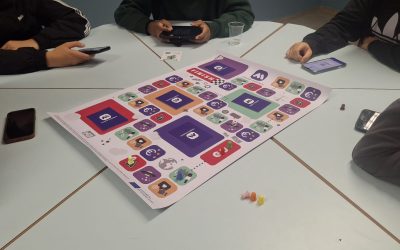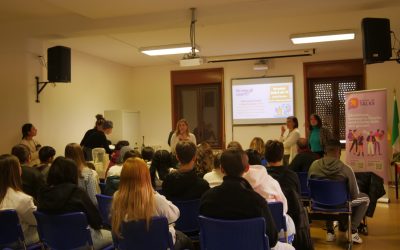Every year on 20 June, World Refugee Day draws attention to the millions of people forced to flee their homes – and to our collective responsibility to protect them. In Italy, thousands of unaccompanied foreign minors arrive without an adult reference figure, exposed to serious risks and often unable to claim their rights.
Guaranteeing rights and protection to refugees means building effective, humane, and fair reception systems every day. However, for unaccompanied minors, the path is still long: they are often victims of trafficking, violence, and exploitation, and face enormous barriers to accessing education, healthcare, and emotional support. As of 31 December 2023, there were over 23,000 in Italy, with more than a quarter in Sicily (according to the Italian Ministry of Work).
To address these challenges, since 2017 the Zampa Law has introduced a specific protection system for unaccompanied foreign minors. Every minor should be supported by a volunteer guardian: an adult who is trained by the regional Authority for Childhood and Adolescence (AGIA) and appointed by the Court for Minors, legally representing the minor’s interests in accordance with the principle of the child’s best interests, established by the 1989 UN Convention on the Rights of the Child.
Yet, seven years on, implementation remains partial and faces significant challenges. According to our research carried out within the GUIDE project, many minors do not have a guardian nor know what their role entails, indicating communication gaps. Volunteer guardians, often without adequate training, face complex situations – such as disabilities or traumatic experiences – without sufficient tools or guidance. Coordination with other reception and protection stakeholders is complex and fragmented, and guardians are sometimes isolated rather than integral parts of a collective journey of care. Furthermore, access to guardianship is often delayed or activated too late, especially for those over 16 years old, thus failing to ensure that minors are properly heard.
A profound change is needed: a protection system works only if it is supported, coordinated, and well-trained. This is precisely what the GUIDE project focuses on.
With GUIDE, we strengthen the skills of guardians and institutions active in taking care of minors. We provide practical and up-to-date tools, such as the Trainers’ Manual, designed for those organising training for volunteer guardians, and the National Map of Services – an evolving platform gathering information on local and regional services, useful for both guardians and minors themselves. Besides this, the project aims to provide new training opportunities and spaces for dialogue and coordination that ensure the participation of guardians and civil society in decision-making processes with the relevant institutions.
When guardians are trained, informed, and supported, they can become reliable points of reference within unfamiliar and complex systems – because no minor should live without being protected, listened to and supported. This is an important reminder on World Refugee Day: protecting minors is a collective act of care that begins by supporting those who stand by them every day. Only together can we guarantee every minor protection, rights, and a future.
About the project
GUIDE – Supporting Guardians of Unaccompanied Children is a project funded by AMIF-2023-TF2-AG-CALL-06-CHILDREN; AMIF Action Grant Budget-Based.
Partners
- EUROPEAN ASSOCIATION OF SERVICE PROVIDERS FOR PE (Belgium, coordinator)
- EUROCHILD (Belgium)
- IASIS (Greece)
- SDRUZHENIE NATSIONALNA MREZHA ZA DETSATA (Bulgaria)
- Imago Foundation (Poland)
- Fundacja Save the Children International (Poland)
- TENENET OZ (Slovacchia)
- CESIE (Italy)
- DIMOS EGALEO (Greece, associated partner)
- Save the Children Europe (Belgium, associated partner)
- SAVE THE CHILDREN ITALIA ONLUS ASSOCIAZIONE (Italy, associated partner)
- Europsky institut regionalneho rozvoja, n.o. (Slovacchia, associated partner)
- TRNAVSKA UNIVERZITA V TRNAVE (Slovacchia, associated partner)
For further information
Read more about the project.Contact Fabiana Adamo: fabiana.adamo@cesie.org.









